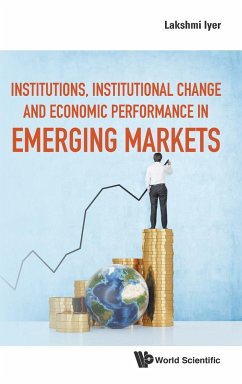Emerging markets play an increasingly important role in the global economy, accounting for 31% of global GDP and more than 50% of global foreign direct investment in 2012. However, doing business in emerging markets remains subject to a high degree of "policy risk," namely the risk that a government will discriminatorily change the laws, regulations, or contracts governing an investment - or will fail to enforce them - in a way that reduces an investor's financial returns. Institutions, Institutional Change and Economic Performance in Emerging Markets brings together a series of Harvard Business School case studies on emerging markets. This book is an invaluable resource for researchers in the fields of economics business to understand the role of specific economic and political institutions in shaping the business environment and economic growth in emerging markets. It gives answers to the following questions: When will governments define and enforce property rights? When will the division of policy authority across different government agents (e.g. federal and subnational governments, or politicians and bureaucrats) enable better policy decisions? And what are the consequences of globalization for the economic growth and stability of emerging market countries?
Hinweis: Dieser Artikel kann nur an eine deutsche Lieferadresse ausgeliefert werden.
Hinweis: Dieser Artikel kann nur an eine deutsche Lieferadresse ausgeliefert werden.








